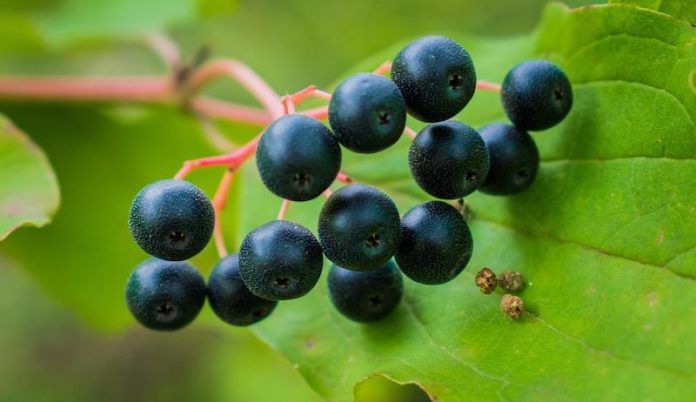
Scientists from Nippon Sport Science University found that blackcurrant extracts could help improve artery functions and blood pressure in older people.
Black currants are little berries that grow on the blackcurrant (Ribes nigrum) plant.
Black currants are high in vitamin C, containing about 85% of your daily recommended value in a single serving. The fruit is also high in iron, vitamin B1, B2, B5, manganese, and phosphorous.
Blackcurrant extract mainly contains anthocyanins.
Anthocyanins are colored water-soluble pigments. The pigments are in glycosylated forms. Anthocyanins responsible for the colors, red, purple, and blue, are in fruits and vegetables.
Berries, currants, grapes, and some tropical fruits have high anthocyanins content.
Previous research suggests that anthocyanins have a beneficial effect on heart functions.
For example, a previous review of studies found that frequent intake of anthocyanin-rich foods was related to a 9% lower risk of coronary heart disease.
Both clinical and preclinical studies have demonstrated strong cholesterol-lowering effects of anthocyanins.
In the current study, the team aimed to examine the effect of a 7-day intake of New Zealand blackcurrant (NZBC) extract on arterial functions, e.g. arterial stiffness, and serum lipids.
New Zealand Blackcurrants are famous for their abundant nutrition, having some of the highest levels of health benefiting anthocyanins of all the world’s berries.
The researchers tested 14 older adults aged around 70. Participants took either a 7-day period of placebo or two capsules of NZBC extract (each 300 mg capsule contains 35% blackcurrant extract).
Participants took one of the two trials first and then took the other after a washout period.
The team examined central arterial stiffness and central blood pressure at the beginning and the end of the 7-day study period.
Arterial stiffness describes the rigidity of the arterial wall. Central blood pressure is the pressure in the aorta, the large artery that sends blood from the heart throughout the body.
The team found that after the 7-day period with blackcurrant intake, participants’ central arterial stiffness and central blood pressure strongly decreased.
In addition, the reductions in central arterial stiffness and central blood pressure were much stronger than that in participants who did not take the blackcurrant extract.
These results suggest that short-term blackcurrant extract intake can reduce central arterial stiffness and central blood pressure in older people.
The team concludes that anthocyanin-rich blackcurrants may help maintain and improve heart health in older people as an alternative to medical treatment.
One limitation of the study is that the blackcurrant intake intervention was only 7 days and thus the benefits were short-term.
More research needs to be done to see if long-term blackcurrant intake could bring similar benefits.
In addition, previous studies found that anthocyanins have cholesterol-lowering effects. Although blackcurrants are rich in anthocyanins, this study did not find cholesterol-lowering effects after 7-day of blackcurrant intake.
More research is needed to see if long-term blackcurrant consumption could offer such a benefit.
The research was published in Clinical and Experimental Hypertension and was conducted by Takanobu Okamoto et al.
Copyright © 2022 Scientific Diet. All rights reserved.





